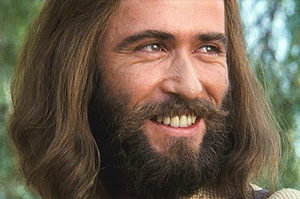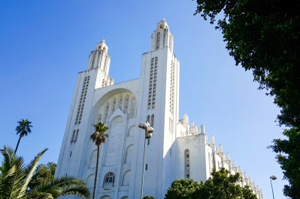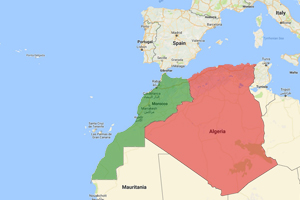
Jesus in the Quran
JESUS in the Quran JESUS IN THE KORAN AND INTER-RELIGIOUS DIALOGUE After much reflection, I have decided, for the first editorial of this blog, part

After much reflection, I have decided, for the first editorial of this blog, part II, to give you a very brief introduction to the place of Jesus, of Meriem “Mary”, mother of Jesus, in the Qur’an, because one of the subjects that comes up most often in the debate between Muslims and Christians is the work and the person of Jesus and Mary. Despite the debates, confrontations and deadlocks, some of them very virulent and heated, it should be noted that many Muslims are completely unaware of the exceptional history of Jesus and Mary in the Qur’an. Similarly, many Christians are simply unaware of the true place of Jesus, Mary and other high Christian figures in the Qur’an.
It should also be pointed out that Muslim theologians, exegetes and historians in general have not been able to give the figure of Jesus the light it deserves, especially since this figure is certainly the most fascinating in the Qur’an, but also the most disturbing, enigmatic and mysterious.
The Qur’anic data about Jesus and Mary is very extensive. The names of Jesus and Mary are much more present in the Qur’an than in the Gospel. Jesus is mentioned 35 times, 27 times by his name Jesus (Issa), and 8 times as the Messiah (Al Massih). As for Mary, she is mentioned more often in the Qur’an than in the whole of the New Testament, i.e. 34 times against only 19 times in the Gospels and the Acts of the Apostles.
Jesus is presented in the Qur'an as the Word of God, his Kalima (word), his Breath and his Holy Spirit, rûh' al-qudus (Qur'an II, 87) and the Messiah (Qur'an III, 49). God gave him the Proofs "Al Bainats" (Quran II, 253; XLIII, 63). The Qur'an has named him among the "nearest" and "closest to God", mugarrabun (Qur'an III, 45) and has conferred upon him an enormous privilege, calling him "Wajih", in this world and in the hereafter (Qur'an III, 45); which implies the Word of God, the Spirit of Holiness and the grace of intercession*(1).
Rachid Lazrak Tweet
The Qur’an has conferred on Jesus the great power to give life (yakhluq) and to raise (yuh’y), (Qur’an III, 49).
The Qur’an confirms the miraculous conception of Jesus in the virginal womb of a young girl from Palestine, Mary. In other words, Mary was a virgin when she gave birth to Jesus (Qur’an 3:45-47; 19:22-26).
All these data affirm the supereminence of Jesus. As such, every Muslim must believe in Jesus and his mission and it is an obligation of his faith.
While Jesus is exalted and revered in the Qur’an, this exceptional figure is also fraught with mystery and troubling questions that can be summed up categorically in these key points:
In recent times, a favorable echo of dialogue among certain theologians, exegetes, Muslim and Christian philosophers is perceptible and opens up promising and encouraging perspectives.
It is obvious that the texts are not intangible; everything depends on their interpretation. Several Qur’anic and biblical statements are offered as a subject for reflection for Muslims and Christians to provoke real human reflection, rather than providing intangible answers. A requirement of practical wisdom is a sine qua non condition to carry the non-naive hope of meaningful progress in the critical and progressive revision of the texts that goes hand in hand with the same ideal, the same values of dignity, peace and love for humanity.
To conclude, we cannot pass over in silence the monumental work on Christian thought and Islam of this eminent priest Youakim MOUBARAC*(3) who pushed to the end the visionary logic which is his by concluding his saving thought with these two strong sentences: “The Mecca being for Islam a provisional Qibla, Jerusalem is for him a Qibla in hope. His sacralization of the Esplanade of the Temple as a bare space, which is a clear rejection of the Old Covenant, is a challenge to the New, not without a secret desire for the table which was for the Disciples more than a promise and around which the guests are called from East and West.
If we can say that Judaism is in the past of Christianity, Islam should be seen as a challenge to the universality of religions and peoples, as the future of Christianity.
Jalal Boubker Bennani


JESUS in the Quran JESUS IN THE KORAN AND INTER-RELIGIOUS DIALOGUE After much reflection, I have decided, for the first editorial of this blog, part

Christianity in Morocco A BRIEF HISTORICAL OVERVIEW OF CHRISTIANS IN MOROCCO We are going to fly over a few periods of the very ancient and

“Like tolerance, philosophy is an art of living together, respecting common rights and values. It is a capacity to see the world through a critical

In the meantime, what could we hope for Algeria? Without doubt that Algeria knows the happiness of an alternation Moroccan style…. SO THAT OUR PEOPLES

The first « think tank » unique in the world: an interfaith Woodstock THE MONASTERY OF TOUMLILINE In a world in “perpetual” distress, desolation, drift,

REINVENTING TOUMLILINE “A people without memory is a people without a future” wrote Aimé César or “He who does not know where he comes from
Test